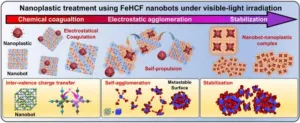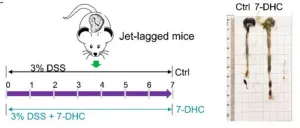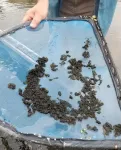Tom McPheron, 630-626-6315, tmcpheron@aap.org
Adam Alexander, 630-626-6765, aalexander@aap.org
Washington, D.C.— Parents of young children under age 5, interested in alternatives to dairy milk, like nut and rice milks, are finding information online, and almost half of the most popular bloggers on this topic were neither dieticians or medical professionals, according to research presented during the 2023 AAP National Conference & Exhibition at the Walter E. Washington Convention Center.
Researchers of the abstract, “Milk Mania: Analyzing Online Information and Perception regarding Milk Alternatives for Toddlers,” studied the 145 most popular blogs for parents of children under age 5 on the topic of milk alternatives. They found that while many parents are seeking information online on the topic of alternatives for milk, 47% of the most popular bloggers on this topic were laypersons without medical training. Of the other bloggers, 32% were nutritionists or dieticians, 12% physicians or nurses, 5% holistic providers, and 4% PhDs and scientists.
“The large number of online blogs discussing dairy milk alternatives for toddlers suggests that this is an issue of great interest to caregivers, who may turn to blogs that provide unsupported information and nutritional recommendations about milk substitutes,” said lead author Kara Sangiuolo, a medical student at Albert Einstein College of Medicine. “I think that there is a major opportunity for pediatricians and pediatric nutritionists to enter the online space and provide more accurate, consistent information to support caregivers looking to transition their toddlers away from dairy milk.”
Of the popular blogs studied, bloggers were most likely to recommend soy milk (37%) and pea milk (17%) as the best milk alternatives, and the most common alternatives referenced were soy milk (84%), almond milk (79%), and rice milk (65%). However, 14 blogs recommended making homemade milks for toddlers, and two blogs claimed homemade milk as the best milk alternative.
“Several blogs included unsupported recommendations such as making unfortified homemade milks for growing toddlers. The lack of consistent information across blogs was concerning, and only half of all blogs discussed the nutrient compositions of dairy milk alternatives,” Sangiuolo said. “This reveals the need for greater dissemination of accurate nutritional recommendations regarding dairy milk alternatives from pediatricians and nutritionists. This information can be delivered online to reach caregivers and better promote the healthy development and nutrition of toddlers in early childhood.”
This research was supported by Cohen Children’s Medical Center in the Division of Developmental and Behavioral Pediatrics and with the support of Dr. Andrew Adesman and Dr. Charles Schleien.
Study author Kara Sangiuolo, is scheduled to present her research, which is below, Sunday, Oct. 22, 2023, from 10-10:45 a.m. as part of the Council on Early Childhood Session. To request an interview with the authors, contact Ms. Sangiuolo at ksangiuolo@northwell.edu.
In addition, Ms. Sangiuolo is among highlighted abstract authors who will give a brief presentation and will be available for interviews during a press conference Sunday, Oct 22, from 8-9 a.m. in the National Conference Press Room, 102 AB During the meeting, you may reach AAP media relations staff in the press room.
Please note: only the abstract is being presented at the meeting. In some cases, the researcher may have more data available to share with media, or may be preparing a longer article for submission to a journal.
# # #
The American Academy of Pediatrics is an organization of 67,000 primary care pediatricians, pediatric medical subspecialists and pediatric surgical specialists dedicated to the health, safety and well-being of infants, children, adolescents and young adults. For more information, visits. Reporters can access the meeting program and other relevant meeting information through the AAP meeting website at http://www.aapexperience.org/
ABSTRACT
Program Name: AAP National Conference & Exhibition
Submission Type: Council on Early Childhood
Abstract Title: Milk Mania: Analyzing Online Information and Perception regarding Milk Alternatives for Toddlers
Kara Sangiuolo
Fairfield, CT, United States
Alternatives to traditional dairy milk (i.e., oat, almond, soy) have become increasingly popular in recent years. The quality and content of information regarding the nutritional value of milk alternatives (MA) for toddlers is currently unknown, and it is unclear which factors influence caregivers’ decisions to switch toddlers to MA. This study seeks to highlight trends in potential benefits and drawbacks of MA discussed on online blogs to help pediatricians effectively counsel caregivers regarding proper nutrition in early childhood.
The top 200 MA blogs related to children under 5 years old were identified by a Google search of phrases (i.e., "milk substitutes for kids"). The following data were collected: a) blog name, b) writer credentials, c) concerns about MA, d) mentioned allergies/intolerances, e) MA types/nutrient composition, f) MA pros/cons, g) best MA claimed. Descriptive analysis was conducted in R.
A total of 145 blogs were analyzed. Across blogs, 32% were written by nutritionists/dieticians, 12% physicians/nurses, 5% holistic providers, 4% PhDs/scientists, and 47% laypeople. Specific types of MA mentioned included soy (84%), almond (79%), rice (65%), coconut (60%), oat (54%), hemp (43%), goat (37%), pea (35%), general plant-based milk (11%), and other milks (i.e., homemade, potato) (28%) (Figure 1). Concerns for switching to MA included: growth/development issues (27%), nutritional value (75%), and taste (21%). 83% of blogs mentioned allergies/intolerances (i.e., dairy, nut, soy, gluten); 54% described MA nutrient compositions. Common positive comments regarding MA included: proper calcium content (n=164), proper vitamins/minerals (n=157); negative comments included: lower protein content (n=297), lower fat content (n=207). Across blogs, the most commonly claimed “best” MA were soy (37%) and pea (17%) (Table 1). Of blogs discussing soy milk, 29% mentioned risk of isoflavones/phytoestrogens; 23% of blogs discussing rice milk mentioned risk of arsenic. 14 blogs recommended making homemade milks, and 2 blogs claimed homemade milks as the best MA (i.e., “homemade [is] always better than store bought”; “make a more nutritious, fuller bodied and flavored milk”).
Online blogs provide a large source of information for caregivers seeking to switch their toddlers from dairy milk to MA. While a portion of blogs were authored by medical professionals, nearly half were written by laypeople lacking the proper training necessary to counsel others regarding MA or pediatric nutrition. The lack of consistency in information across blogs was concerning, revealing the need for greater dissemination of accurate information and pediatric recommendations regarding MA from medical professionals. Additionally, unsupported recommendations such as making unfortified homemade milks presents significant concern for growing toddlers. It is imperative that pediatricians and nutritionists have a greater online presence in order to guide MA-related recommendations and ensure the healthy development and nutrition of toddlers in early childhood.
END



